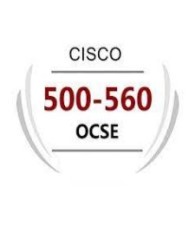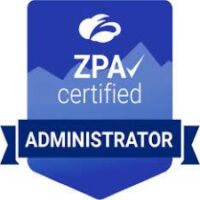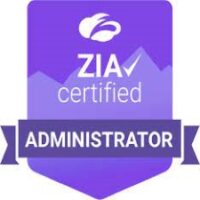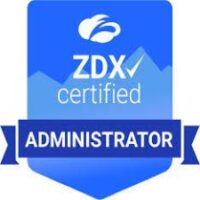Cisco continues its focus on FedRAMP® Authorization for our government customers with yet another solution, Cisco Defense Orchestrator (CDO), which has now achieved FedRAMP In-Process status. With … Read more on Cisco Blogs
[[{“value”:”
Cisco continues its focus on FedRAMP® Authorization for our government customers with yet another solution, Cisco Defense Orchestrator (CDO), which has now achieved FedRAMP In-Process status. With CDO your agency gains an integrated cloud management solution that streamlines and improves efficacy of policy administration across a variety of security solutions. This lets you manage, analyze, and optimize firewalls (FTD, ASA) across on-premises, virtual, and cloud environments with simplicity, increasing your agency’s effectiveness and compliance.
Cisco Defense Orchestrator’s In-Process status comes on the heels of Cisco Meraki achieving FedRAMP agency Authority to Operate (ATO), and reflects our ongoing commitment to provide secure and efficient digital transformation for government agencies. CDO gives your agency’s IT team one place to manage all your network security solutions, regardless of form factor, from cloud to hardware.
How Cisco Defense Orchestrator adds value for government
Did you know meeting FedRAMP requirements is crucial for the modernization of your network? By deploying Cisco Defense Orchestrator (see FedRAMP Marketplace Listing), your agency can maintain a strong security posture and further meet those FedRAMP requirements with:
Improved security posture – CDO effectively manages security policies and configurations to enhance security and reduce vulnerabilities and attack surfaces.
Efficient policy management – Control policies and share objects across various firewall form factors, providing a fully unified experience between on-premises and cloud-based management. This efficiency aligns with FedRAMP’s goal of ensuring secure and compliant operations.
Centralized visibility – With CDO, federal agencies have real-time insight into network traffic and security events, enabling faster threat detection and mitigation by security teams. This visibility is crucial for maintaining compliance with FedRAMP requirements. Plus, CDO’s advanced analytics give you insight into remote user traffic, including visibility and geographic distribution, helping you better manage security.
Automation and orchestration – CDO streamlines security policy changes and orchestrates workflows, saving time and effort while ensuring consistent policy enforcement. It also offers automation and orchestration capabilities, handling routine tasks such as object updates and device onboarding.
Audit and compliance reporting – CDO offers robust reporting capabilities, helping organizations track and document security policy changes. These reports and their detailed information are valuable for demonstrating compliance with FedRAMP standards.
Real-time threat intelligence – Cisco’s threat intelligence feeds are integrated with CDO, providing real-time information on emerging threats. This helps federal agencies stay proactive in their security posture, which is essential for FedRAMP compliance.
Scalable security from the cloud – Being a Software-as-a-Service (SaaS) solution, CDO can scale to meet the evolving needs of federal agencies, making it suitable for organizations of various sizes. This scalability aligns with FedRAMP’s goal of supporting the growth and changing requirements of government entities.
Why FedRAMP is important to your agency
As you may know, FedRAMP, short for Federal Risk and Authorization Management Program, is a U.S. government-wide program that standardizes the security assessment, authorization, and monitoring processes for cloud products and services used by federal agencies.
The U.S. government’s FedRAMP program was established to improve the security posture of federal information systems and data by ensuring that Cloud Service Providers (CSPs) meet stringent security standards and requirements by:
Providing a standardized set of security requirements and assessment processes.
Enhancing the security posture of cloud services used by federal agencies by requiring CSPs to undergo a rigorous security assessment process.
Reducing the cost and effort required for federal agencies to assess and authorize cloud services individually.
Allowing interoperability between federal agencies, promoting collaboration and information sharing – a“win-win”for everyone.
Best of all, Cisco’s FedRAMP solutions can also be deployed by state, local, and Tribal governments, allowing them to gain the same high level of security and compliance achieved through the program’s rigid testing and processes.
Remember, FedRAMP is crucial to your agency’s success
If you serve in a federal agency, FedRAMP plays a crucial role in ensuring the security and compliance of your cloud services. Its standardized approach, risk management focus, and emphasis on continuous monitoring helps to protect your data while also streamlining your procurement and adoption of cloud technologies.
By setting high security standards and requiring continuous monitoring, FedRAMP reduces your risk of data breaches and cyberattacks, which is critical for protecting your sensitive government information and keeping our nation secure. That’s why our team at Cisco continues to focus on FedRAMP Authorization for our solutions and why we’re excited that another Cisco solution, Cisco Defense Orchestrator, has achieved FedRAMP In-Process status, and is helping secure America’s future.
Additional resources
For more information on the FedRAMP authorization process, visit Understanding FedRAMP: How Cisco Umbrella is Getting Authorization.
Discover Cisco’s FedRAMP solutions.
See how Cisco serves the U.S. federal government.
“}]] Cisco continues its focus on FedRAMP® Authorization for our government customers with the addition of Cisco Defense Orchestrator (CDO), which has now achieved FedRAMP In-Process status. Cisco CDO is an integrated cloud management solution that streamlines policy administration across security solutions. Read More Cisco Blogs










